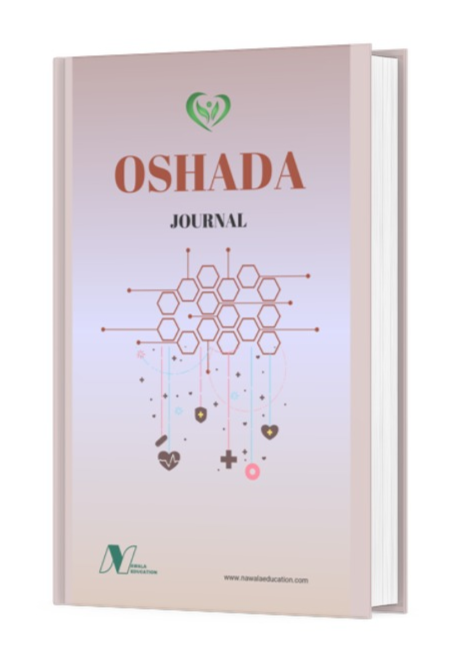Boosting Perceptions of the Benefits of Complication Prevention in Reproductive Age Diabetes Mellitus Patients via Self-Talk Affirmation Intervention
DOI:
https://doi.org/10.62872/x7szjb48Keywords:
Diabetes Mellitus, Perceptions of the Benefits, Self-talkAbstract
Diabetes mellitus is a chronic disease that lasts a long time and requires high adherence and self-discipline to carry out comprehensive self-care management to control blood glucose levels and prevent further complications. The practice of self-management requires knowledge or literacy and a positive mindset that is supported by good self-confidence for DM sufferers to be able to do it. Several studies have only examined aspects of physical intervention, such as providing physical activity (DM gymnastics) and education on medication adherence, but there are still few interventions that provide mindset strengthening in the form of self-talk affirmations in order to form a positive perspective on the perception of the benefits of preventing DM complications in sufferers. The study's objective was to ascertain whether using self-talk affirmations would improve DM patients' perceptions of the benefits of preventing complications in Pekalongan Regency, Central Java, Indonesia. 158 individuals with DM participated in this study using a cross-sectional quantitative research approach and a pre-post test sample design. A questionnaire was utilized for data collection, and a Paired T-test for data analysis, which assessed patients' perceptions of the benefits of preventing DM complications either before and after receiving affirmative self-talk therapies. Patients' perceptions of the benefits of preventing DM complications are influenced by the results of self-talk and self-affirmation interventions; there is a difference in the mean score of perceived benefits before and after the intervention. For patients with DM who are of working age, self-talk affirmations might be included to a list of self-management interventions.
Downloads
References
afroz, a., hird, t. r., zomer, e., owen, a., chen, l., ademi, z., liew, d., magliano, di. j., & billah, b. (2020). the impact of diabetes on the productivity and economy of bangladesh. bmj global health, 5(6), 1–8. https://doi.org/10.1136/bmjgh-2020-002420
blaga, o. m., vasilescu, l., & chereches, r. m. (2018). use and effectiveness of behavioural economics in interventions for lifestyle risk factors of non-communicable diseases: a systematic review with policy implications. perspectives in public health, 138(2), 100–110. https://doi.org/10.1177/1757913917720233
caprara, g. (2021). mediterranean-type dietary pattern and physical activity: the winning combination to counteract the rising burden of non-communicable diseases (ncds). in nutrients (vol. 13, issue 2). https://doi.org/10.3390/nu13020429
gómez-velasco, d. v., almeda-valdes, p., martagón, a. j., galán-ramírez, g. a., & aguilar-salinas, c. a. (2019). empowerment of patients with type 2 diabetes: current perspectives. diabetes, metabolic syndrome and obesity, 12, 1311–1321. https://doi.org/10.2147/dmso.s174910
idris, h., & mursyid, r. s. (2023). factors affecting the utilization of health services among diabetic people in indonesia. malaysian journal of public health medicine, 23(1), 82–91. https://doi.org/10.37268/mjphm/vol.23/no.1/art.994
khiyali, z., ghasemi, a., toghroli, r., ziapour, a., shahani, n., dehghan, a., & yari, a. (2021). social support and self ‑ care behavior study. journal of education and health promotion, january, 1–6. https://doi.org/10.4103/jehp.jehp
li, m., jeeyavudeen, m. s., arunagirinathan, g., & pappachan, j. (2023). is type 2 diabetes mellitus a behavioural disorder? an evidence review for type 2 diabetes mellitus prevention and remission through lifestyle modification. touchreviews in endocrinology, 19(1), 7–15. https://doi.org/10.17925/ee.2023.19.1.7
lim, o. w., & dass, s. c. (2022). identifying newly diagnosed diabetes mellitus risk factors using graphical networks with expert knowledge. malaysian journal of public health medicine, 22(3), 22–33. https://doi.org/10.37268/mjphm/vol.22/no.3/art.1434
markle-reid, m., ploeg, j., fraser, k. d., fisher, k. a., bartholomew, a., griffith, l. e., miklavcic, j., gafni, a., thabane, l., & upshur, r. (2018). community program improves quality of life and self-management in older adults with diabetes mellitus and comorbidity. journal of the american geriatrics society, 66(2), 263–273. https://doi.org/10.1111/jgs.15173
mellergård, e., johnsson, p., & eek, f. (2021). developing a web-based support using self-affirmation to motivate lifestyle changes in type 2 diabetes: a qualitative study assessing patient perspectives on self-management and views on a digital lifestyle intervention. internet interventions, 24(july 2020), 100384. https://doi.org/10.1016/j.invent.2021.100384
nejat, n., khan mohamadi hezave, a., aghae pour, s. m., rezaei, k., moslemi, a., & mehrabi, f. (2021). self-care and related factors in patients with type ii diabetes in iran. journal of diabetes and metabolic disorders, 20(1), 635–639. https://doi.org/10.1007/s40200-021-00791-6
oo, a. m., al-abed, a. abed a. a., lwin, o. m., kanneppady, s. s., sim, t. y., mukti, n. a., zahariluddin, a. s., & jaffar, f. (2020). type 2 diabetes mellitus prediction in malaysia using modified diabetes risk assessment tool. malaysian journal of public health medicine, 20(1), 15–21. https://doi.org/10.37268/mjphm/vol.20/no.1/art.442
saeedi, p., petersohn, i., salpea, p., malanda, b., karuranga, s., unwin, n., colagiuri, s., guariguata, l., motala, a. a., ogurtsova, k., shaw, j. e., bright, d., & williams, r. (2019). global and regional diabetes prevalence estimates for 2019 and projections for 2030 and 2045: results from the international diabetes federation diabetes atlas, 9th edition. diabetes research and clinical practice, 157, 107843. https://doi.org/10.1016/j.diabres.2019.107843
searle, a., ranger, e., zahra, j., tibbitts, b., page, a., & cooper, a. (2019). engagement in e-cycling and the self- management of type 2 diabetes: a qualitative study in primary care. bjgp open, 3(2), 1–9. https://doi.org/10.3399/bjgpopen18x101638
simões corrêa galendi, j., leite, r. g. o. f., banzato, l. r., & nunes-nogueira, v. d. s. (2022). effectiveness of strategies for nutritional therapy for patients with type 2 diabetes and/or hypertension in primary care: a systematic review and meta-analysis. international journal of environmental research and public health, 19(7). https://doi.org/10.3390/ijerph19074243
wang, g. x., gauthier, r., gunter, k. e., johnson, l., zhu, m., wan, w., tanumihardjo, j. p., & chin, m. h. (2023). improving diabetes care through population health innovations and payments: lessons from western maryland. journal of general internal medicine, 38, 48–55. https://doi.org/10.1007/s11606-022-07918-2
Downloads
Published
Issue
Section
License
Copyright (c) 2024 Rr. Vita Nurlatif (Author)

This work is licensed under a Creative Commons Attribution-ShareAlike 4.0 International License.

This work is licensed under a Creative Commons Attribution-ShareAlike 4.0 International License.











